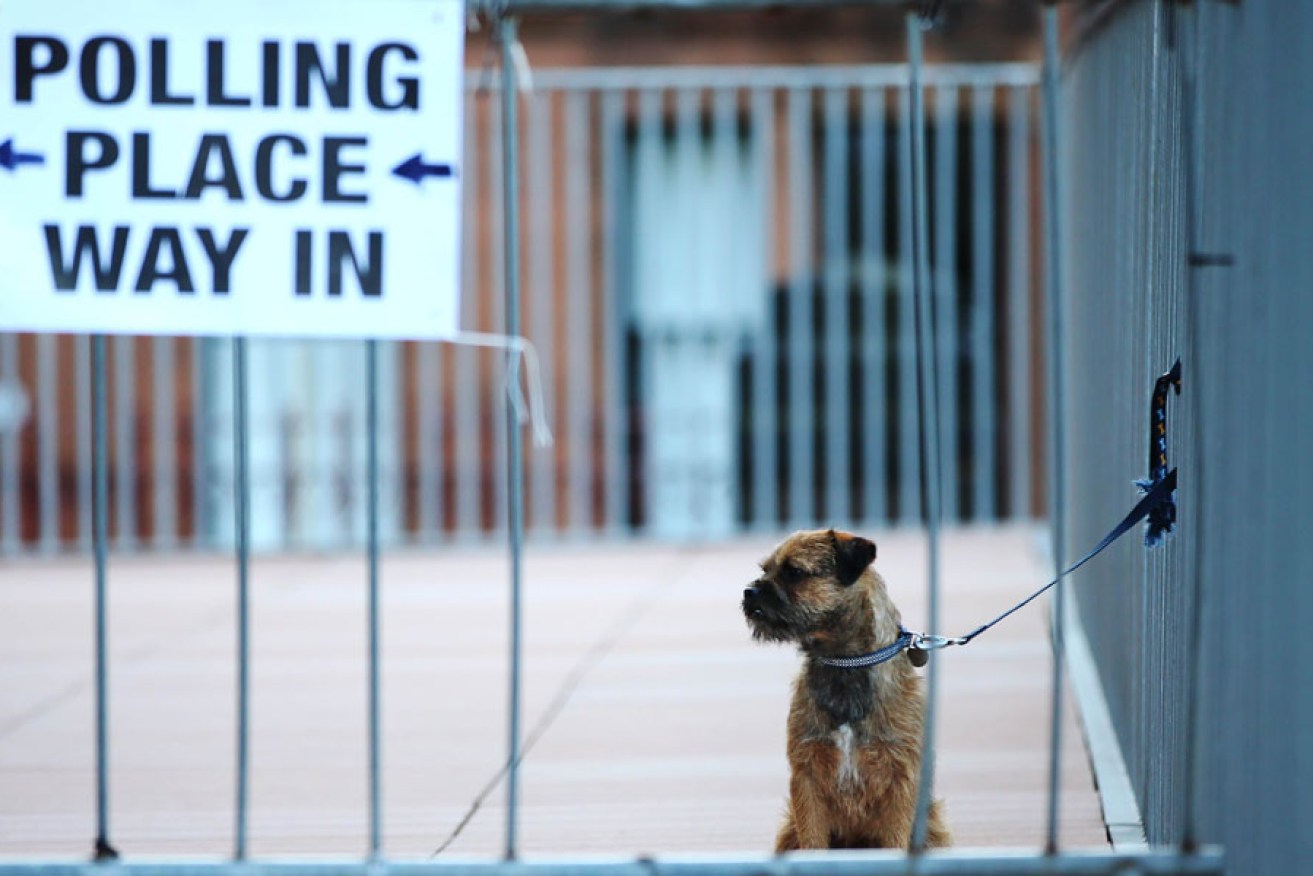The Conservative Party has fared much better than expected in British parliamentary elections, an exit poll projected, suggesting that Prime Minister David Cameron is within touching distance of forming a new government.
The opposition Labour Party of Ed Miliband took a beating, according to the poll, much of it due to the rise of the separatist Scottish National Party.
The poll said the SNP would take all but one of the 59 seats in Scotland, most of them from Labour.
Cameron’s coalition partner, the Liberal Democrat Party, was expected to lose most of its seats on a night that shook the grip of Britain’s three biggest parties.
The exit poll, based on interviews with 22,000 voters, differed strongly from opinion polls conducted during the month-long election campaign, which had put the Conservatives and Labour neck-and-neck with about a third of the vote share each.
London Mayor Boris Johnson, who is running for a seat in Parliament as a Conservative, said that if the poll is accurate, “then obviously it’s a very, very clear victory for the Conservatives and a very bad night for Labour”.
Political leaders warned against jumping to conclusions before full results are in, and some expressed scepticism about the poll.
“I have to say it just doesn’t feel right,” said longtime Labour adviser Alistair Campbell.
Former Liberal Democrat leader Paddy Ashdown was equally sceptical, telling the BBC: “I’ll bet you my hat, eaten on your program, that it is wrong.”
But early results backed the poll’s general trend: In the first constituencies announced, Labour gained some votes from the Conservatives but picked up fewer than needed from the collapse in Liberal Democrat support, and lost votes in some areas to the UK Independence Party.
The exit poll projected that the Conservatives would get 316 seats – up from 302 and far more than had been predicted – and Labour 239, down from 256.
The Liberal Democrats would shrink from 56 seats to 10, while the Scottish nationalists would grow from six to 58, all but one of Scotland’s seats.
If the exit poll is accurate, the Conservative Party would be in a commanding position to form the next government by seeking partners from smaller parties.
There could be a re-run of the Conservative-Liberal Democrat coalition that has governed since 2010. The poll put the two parties’ total at 326 – just over half the 650 seats in the House of Commons.
Cameron could also seek support from the right-of-centre Democratic Unionists in Northern Ireland, which had eight seats before the election, or the anti-European, anti-immigration UK Independence Party.
The survey was conducted by pollsters GfK and Ipsos MORI for Britain’s broadcasters and released as polling stations closed and the counting began.
UKIP ran third in opinion polls, but the exit poll predicted it would win just two seats because its support isn’t concentrated in specific areas.
All day across the nation of 64 million people, voters streamed to schools, churches and even pubs for a say in their country’s future. About 50 million people were registered to vote, and turnout appeared to be high.
Britain’s economy – recovering after years of turmoil that followed the 2008 financial crisis – was at the core of many voters’ concerns.
said Lesley Milne, 48, from Glasgow, who supports the Scottish National Party.
“It’s time to shake up the politicians in London and the SNP are the people to do it.”
The carefully stage-managed campaign lacked impromptu drama. But television debate appearances in which the public put questions directly to the politicians made plain that many distrust promises to safeguard the economy, protect the National Health Service from severe cutbacks and control the number of migrants from the European Union.
Cameron and Miliband were both up early to vote. The prime minister voted in his Oxfordshire constituency with his wife, Samantha, while Miliband cast his ballot alongside his wife, Justine, in northern England.
Liberal Democrat leader Nick Clegg, the deputy prime minister in Cameron’s government, walked hand-in-hand with his wife Miriam to the polls in the city of Sheffield.
Britain’s economy – recovering after years of turmoil that followed the 2008 financial crisis – was at the core of many voters’ concerns.
There was an excitement about taking part – if only for the pleasure of being involved in a big national event.
Many used social media to spread the news that they had voted. Facebook said that for the first time in a British general election, users have access to the “I’m a Voter” button. More than 1.3 million people had used it as of Thursday morning.
Dogs and other creatures also featured on polling day. The hashtag (hash)DogsAtPollingStations was one of the top 10 trends in Britain on Twitter, where many people posted fun photos of pups they took to – or spotted – at polling stops.





